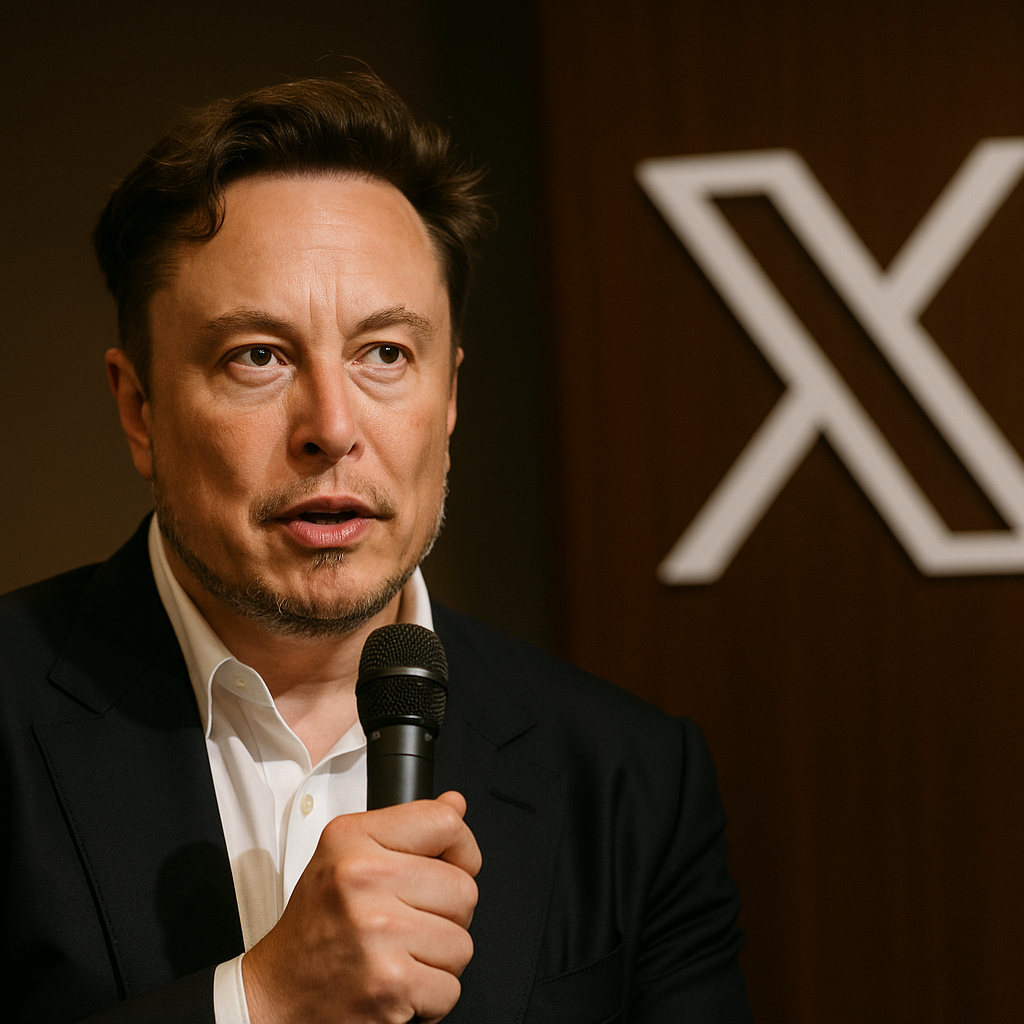A U.S. court revives key claims against X (formerly Twitter) for failing to report child abuse content in time — raising questions about Elon Musk’s platform design, global obligations, and Section 230 immunity.
By GlobalTimesAI.com
📅 August 2025

1. Legal Battle Reopened: X Must Face Claims of Negligence
A federal appeals court in the U.S. 9th Circuit recently revived a key part of the lawsuit Doe v. Twitter, Inc., ruling that X must face claims related to a sexually explicit video involving two minor boys shared on the platform, despite Section 230 immunity protections. Although the company is shielded regarding user-generated content, the court allowed negligence and product liability allegations to proceed Wikipedia+
The plaintiffs were coerced into submitting photos via Snapchat, which were compiled into a video shared on Twitter and viewed more than 167,000 times before being removed nine days later India Today+
2. Core Allegations: Delay and Defective Reporting Systems
Key claims advanced by plaintiffs include:
- Delayed Reporting: Twitter waited nine days after content was flagged before removing it and alerting the National Center for Missing and Exploited Children (NCMEC) Wikipedia+
- Usability Issues: The platform’s reporting interface allegedly made it unduly difficult to report child sexual abuse material (CSAM), diverting users to obscure forms rather than a standard ‘report’ button PPC Land.
3. Can Section 230 Still Protect X?
While Section 230 of the Communications Decency Act generally shields platforms from liability over user-generated content, the court found:
- Duty to report CSAM to NCMEC is statutory, not tied to publication immunity.
- Once X had actual knowledge, it legally couldn’t delay or block reporting News.com.au+
Claims that X knowingly profited from trafficking were dismissed, preserving broad 230 protections for publication — but not for delayed mandatory reporting Reuters.
4. Global Regulatory Pressure: Australia Fines X
Separately, Australia’s eSafety Commissioner fined X AUD 610,500 for refusing to comply with safety notice demands about CSAM transparency under the Online Safety Act. The courts rejected X’s argument that regulatory obligations lapsed after corporate restructuring AP News+. X must also pay legal costs, and a new law banning children under 16 from platforms like X takes effect in December 2025 AP News+
5. Broader Context: Policy Breakdown Since Musk’s Takeover
Under Elon Musk’s leadership, X disbanded its Trust & Safety Council in late 2022, shifted to automation-heavy moderation, and correlated with rising CSAM detection failures. A Stanford study and BBC Panorama reported persistent abuse content and significant moderation lapses NCOSE+3Wikipedia+
Reports highlighted that proactive detection rates dropped from 90% to 75% in some regions, particularly in Asia-Pacific Wikipedia.
6. Research Validates Need for Speed
A recent study modeling content dissemination demonstrated that rapid takedowns—within hours—dramatically reduce exposure and prevalence of illegal content. Delays, even skilled moderation, make enforcement far less effective arxiv.org.
7. Why This Case Matters
- Legal Precedent: Platforms may be held liable for system design and fails in mandatory reporting, even if content was user-uploaded.
- Revisiting 230: Courts retreat from blanket immunity if platforms knowingly delay reporting CSAM.
- Industry fallout: Brand and ad revenue plummeted after Twitter failed to suspend 70% of flagged accounts in past incidents Courthouse News+
Summary Table: Key Developments
| Issue | Status |
|---|---|
| Content removal delay | Took 9 days before removal/reporting |
| Section 230 immunity | Limited—no protection for delayed duty |
| Reporting system design | Found defective and user-unfriendly |
| Global legal rulings | U.S. Ninth Circuit & Australian courts |
| Broader moderation trend | Detection rates dropping since 2022 |
Future Outlook
- Discovery Phase: X may be compelled to disclose internal reports, moderation logs, and design decisions.
- Legislative Response: U.S. lawmakers may pursue EARN IT Act (revise Section 230 obligations) or strengthen transparency mandates IndiaToday+
- Platform Reform: Social media companies will likely enforce stricter reporting mechanisms, enhanced CSAM scanning, and revert to higher human oversight.
Final Thoughts
While X enjoys general immunity for user content under Section 230, courts are signaling that this protection does not apply when the platform fails statutory duties—especially around timely reporting of child exploitation material. Design decisions, legitimacy of reporting systems, and response delays can now expose platforms to actionable negligence.
The case could redefine how tech giants structure safety features and uphold their legal obligations — not just in the U.S., but globally.
Disclaimer
All images used in this article are AI-generated and intended for illustrative purposes only. The content presented is based on information sourced from reliable publications, official reports, and expert statements at the time of writing. While we strive for accuracy, GlobalTimesAI.com does not claim absolute authenticity of all third-party information. Readers are advised to verify independently if making decisions based on this content.